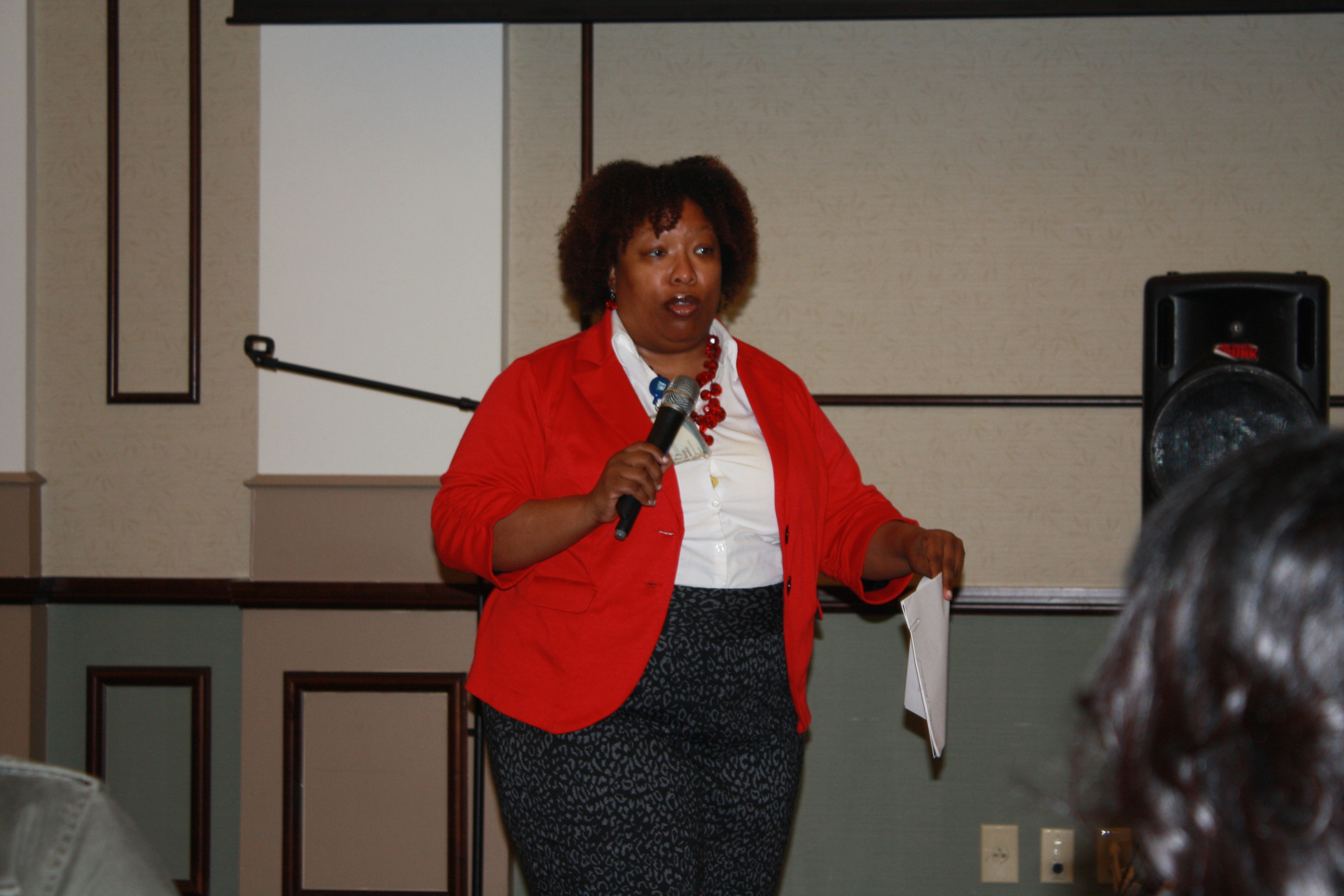
By Shanderia K. Posey
Editor
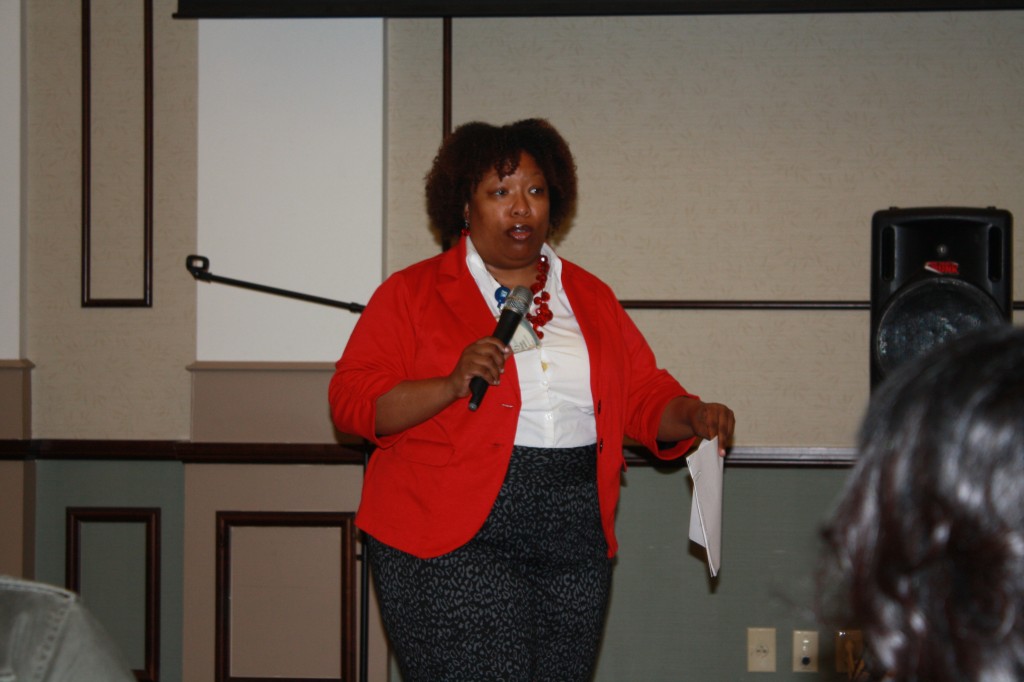
To shed light on the epidemic of HIV/AIDS in Mississippi, The Mississippi Link partnered with Mississippi Faith in Action to sponsor a breakfast Tuesday, World AIDS Day.
The Link has been actively participating in HIV/AIDS seminars across the nation and has published important health articles regarding testing, prevention, treatment and counseling. Mississippi Faith in Action, founded in 2013, aims to address Mississippi’s HIV/AIDS epidemic by engaging in diverse activities to promote HIV/AIDS awareness, offer testing and treatment and fight stigma.
The event held at the Hilton Garden Inn in downtown Jackson brought together faith leaders, health officials, community leaders, and students from Jackson State University and Tougaloo College. Experts in the field of HIV/AIDS research including Dr. Laura Beauchamps, assistant professor of infectious diseases at the University of Mississippi Medical Center; Mauda Monger, HIV director at UMMC; and Patricia Smith, a social worker with the G.A. Carmichael Family Health Center, were guest speakers. They each shared information of the disheartening data of Mississippians, particularly African-Americans ages 13-24, being diagnosed with HIV.
“It is sad what I’m seeing every week. I’m seeing a lot of adolescents,” said Beauchamps, who treats patients at Open Arms Healthcare Center in Jackson.
There is an epidemic in the Jackson area of young African-American men who sleep with men (MSM) getting infected with HIV, according to Beauchamps, who along with social workers, mental health providers, and patient navigators are constantly working to make people more comfortable discussing sexual behavior and sexual orientation.
“We actually have the highest case rates in the nation of children 13-24,” said Monger, who stressed that most new cases are among young African Americans.
To educate the audience, Monger talked about the difference between HIV and AIDS noting that HIV is the virus that causes AIDS. Once a person’s immune system drops to a certain point, AIDS occurs. People who are diagnosed early and take medication may never develop AIDS.
“As far as Mississippi goes, (this is) the worst place in the nation to be diagnosed with AIDS. You’re more likely to die in Mississippi than any other state,” said Monger. She cited access to healthcare and the stigma surrounding HIV as reasons for the disparity.
One thing the experts stressed was the use of PrEP to prevent new infections of HIV.
Targeted toward individuals whose lifestyle and/or sexual behavior lends them to greater exposure of the virus, PrEP is a daily-pill regimen that will prevent someone from becoming infected. PrEP must be used with other prevention methods such as condom use.
Ideally, health providers target those at risk to inform them about the pill. Unfortunately, as Beauchamps noted, sometimes people wait too late. For example, one of her patients was supposed to come in for an appointment four months ago to discuss PrEP but missed the appointment. The patient thought he wasn’t at risk because he didn’t feel sick. “That’s the problem. They think they are invincible,” Beauchamps said. Two weeks ago he finally came in only to learn he was HIV positive.
Mississippi was the first state to establish a PrEP hotline. The number is 1-844-YES-PREP or 1-844-937-7737. Anyone can call, answer a few questions and potentially schedule an appointment. The drug is covered by most private insurance as well as Medicaid and CHIP. While only in pill form now, an injectable form of the medicine may become available soon.
One in five people are unaware of their HIV status, according to Monger. “That’s one of our biggest issues,” she said. For example, many people go to their primary doctors and never get tested. Previously, the Centers for Disease Control and Prevention recommended anyone age 16-64 get tested, but Monger says there should be no age limit on testing. The CDC now recommends a person get tested in any medical setting, such as an ER visit.
Free testing for chlamydia, gonorrhea, syphilis and HIV infection is available at all county health departments and health department clinics. Treatment for STDs is also provided at all health department clinics.
Smith has worked with HIV patients for 10 years. As a social worker, her job is to help clients work on a plan and offer extra support beyond the clinical setting. She has set daily reminders on her cell phone to call clients and encourage them to take their medication; sometimes a month at a time just for one client.
“Whatever clients need, we are there,” Smith said.
Tougaloo College student Natosha Pngarthit plans to make good use of the information she heard. “What I took from this event was to get more educated and to help educate my peers cause it’s important as African Americans within our communities to be informed,” she said. Fellow Tougaloo student Semarial Wilder said she “learned that there’s a huge difference between HIV and AIDS and that you can never really tell by just looking at somebody.”
Smith encouraged all JSU and Tougaloo students present to get tested and know their status.
She also emphasized the importance of those in the older population to get tested as well. Once while working at a church, she had to tell an older woman who had been married to the same man for 50 years that she was HIV positive.
“In real life you can only account for you,” Smith said.
Her job requires her to discuss practicing safe sex to prevent infection.
“It’s all about being informed, not encouraging someone to have sex … so that if they find themselves in a situation, they’ll know what to do to protect themselves,” she said.
Also as part of the partnership highlighting World AIDS Day, several testing events at local churches were held Nov. 29. “The goal is to get tested, know your status and if needed, get into treatment or as we commonly say get linked to care,” said Othor Cain, an associate with Mississippi Faith in Action.
More than 44 people were tested at Cathedral AME Church where Gary Adams serves as pastor.
Greater Antioch MB Church also was a host church for testing. The pastor led the charge and demonstrated his faith by getting tested. “HIV is personal for me as I’ve had family members to die from complications of HIV,” said Clyde Tate, senior pastor at Antioch. “I can’t ask anything of my members that I’m not willing to do.”
If you are interested in HIV testing at your church please visit mississippifaithinaction.org.
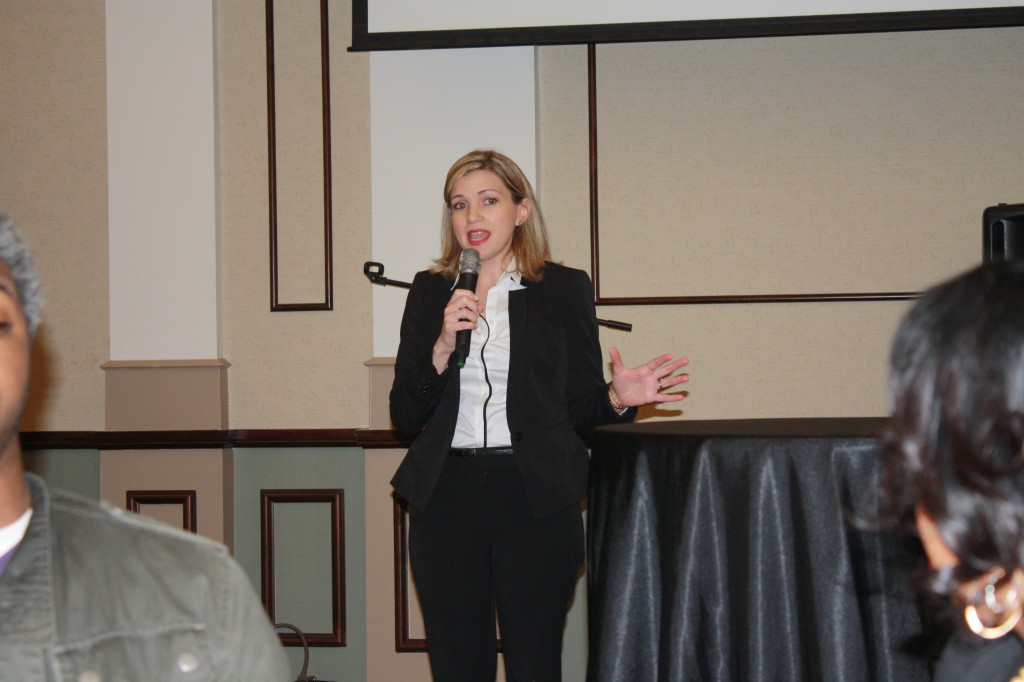

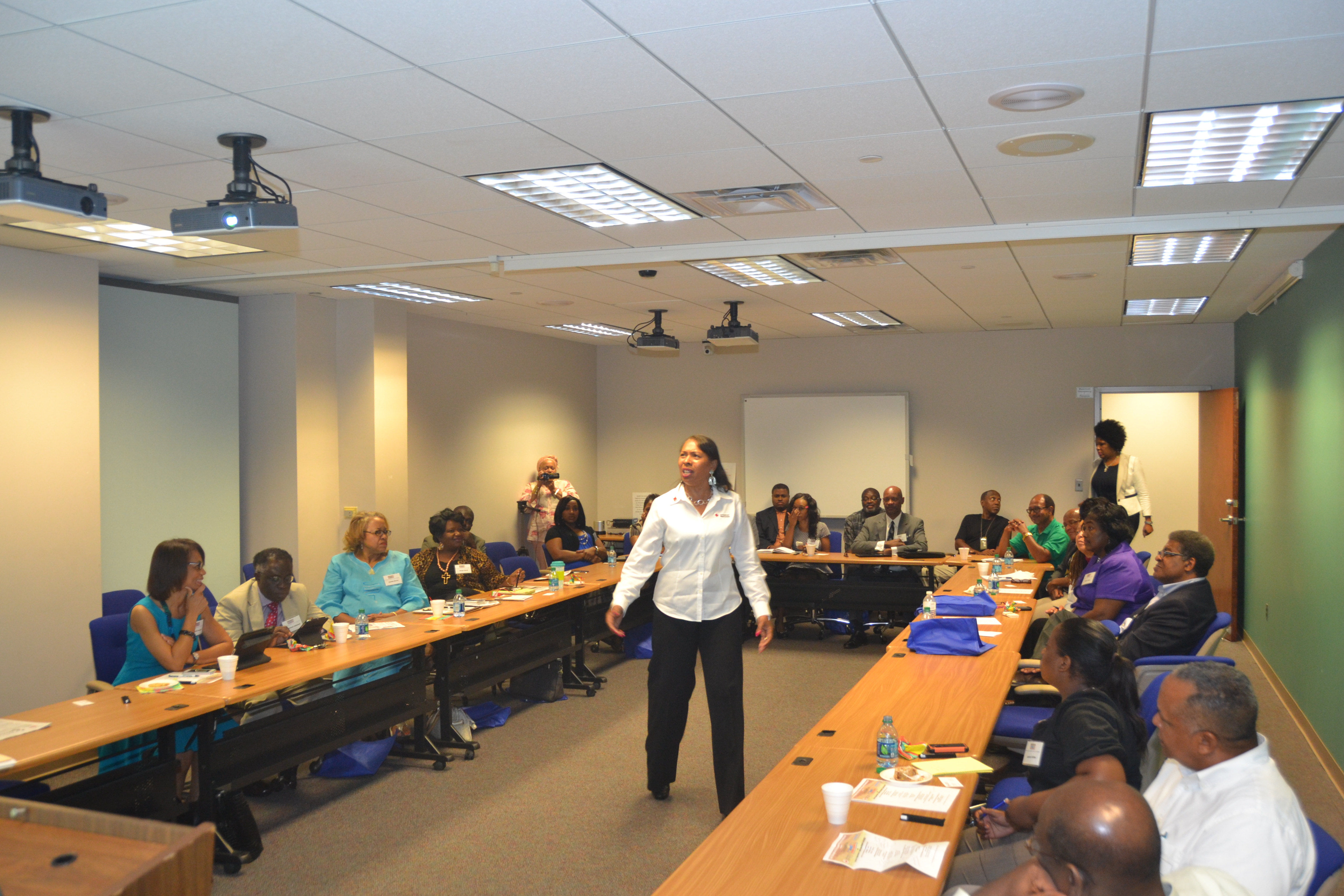

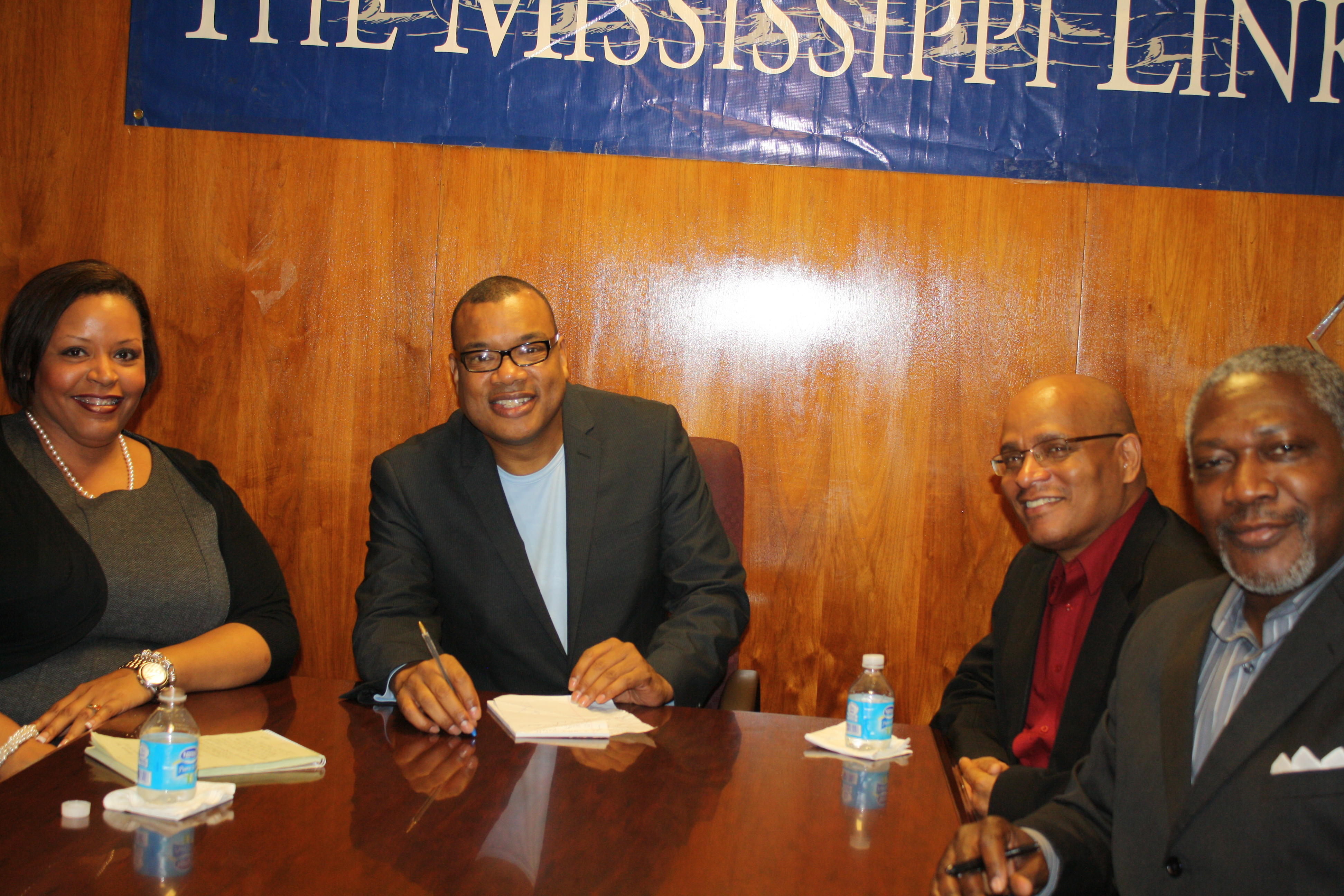
Be the first to comment